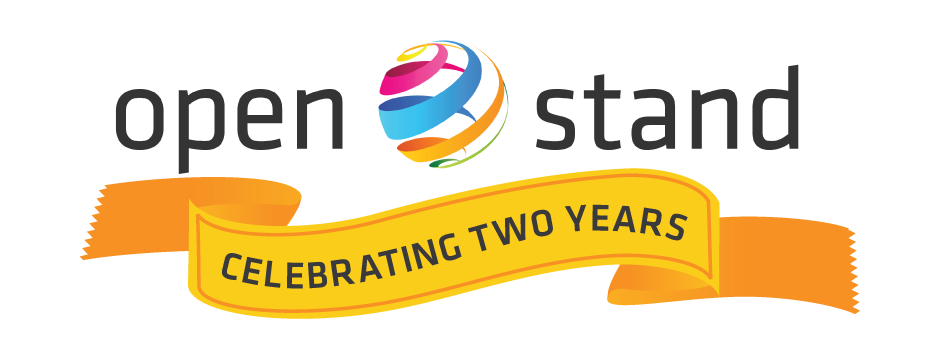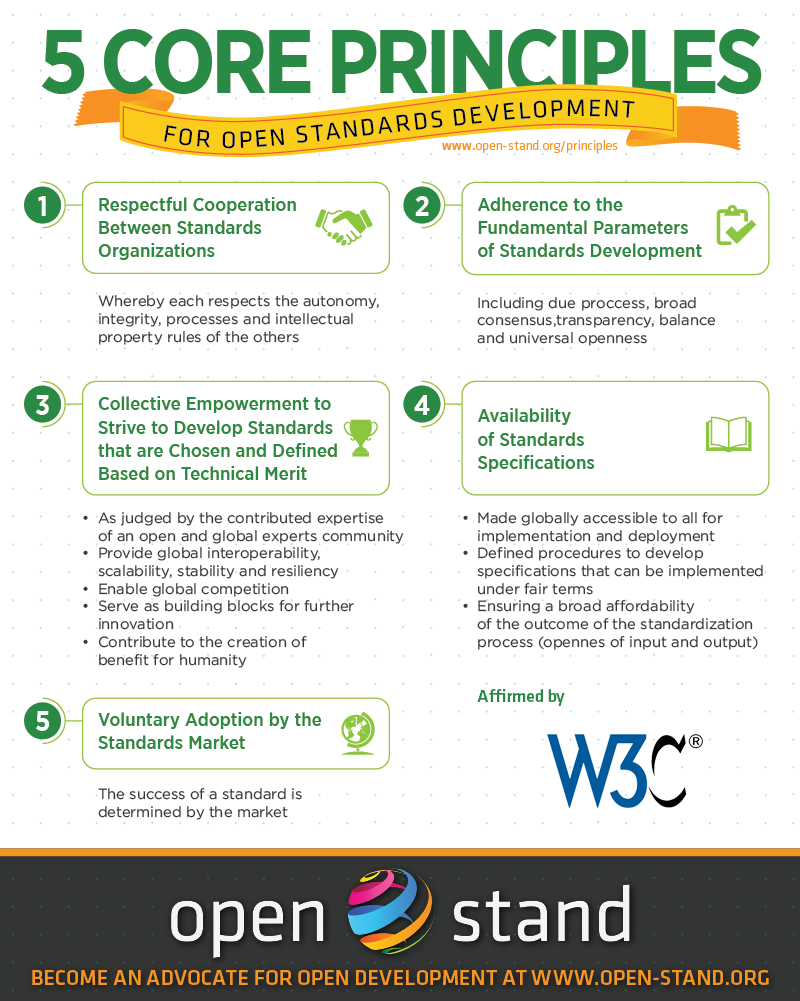W3C Celebrates Two Years of OpenStand

Two years ago, IEEE, the Internet Architecture Board (IAB), Internet Engineering Task Force (IETF), Internet Society and World Wide Web Consortium (W3C) announced a set of principles for modern standards development under the banner OpenStand.
As one measure of the usefulness of the OpenStand principles, I decided to compare them with the Open Standards Principles published in 2012 by the UK government. The UK Government's principles are written from the perspective of a purchaser of IT technology, rather than that of a developer of technology. Nonetheless, for OpenStand to be useful in the context of government procurement, I would hope to see strong alignment.
Here are the UK Government principles and how I think OpenStand applies:
- We place the needs of our users at the heart of our standards choices.
- OpenStand highlights the goal of creating standards that "contribute to the creation of global communities, benefiting humanity." In addition, OpenStand emphasizes voluntary adoption and market-driven success. We believe that users benefit when standards lower barriers to innovation and deployment of new technology.
- Our selected open standards will enable suppliers to compete on a level playing field.
- OpenStand is a commitment to collective empowerment by striving for standards that "enable global competition," so there is strong alignment here (even though the UK principles do not emphasize "global" standards).
- Our standards choices support flexibility and change.
- The OpenStand commitment similarly states that standards must "provide global interoperability, scalability, stability, and resiliency" and "serve as building blocks for further innovation."
- We adopt open standards that support sustainable cost.
- OpenStand requires that specifications be "accessible to all for implementation and deployment." In addition, W3C's Web standards are developed under a Royalty-Free patent policy, which lowers the cost of implementing them.
- Our decisions on standards selection are well informed.
- The requirements for due process, transparency, and openness, OpenStand principles should make it easier for governments to learn how a standard was created, issues that were resolved, the degree of community support, status of deployment, and more.
- We select open standards using fair and transparent processes.
- The transparency and openness of processes compatible with OpenStand should make it easier for governments to evaluate options transparently.
- We are fair and transparent in the specification and implementation of open standards.
- That aligns directly with OpenStand values of fairness, transparency, and openness in the development of standards.

As we can see, there is strong alignment. The UK policy, although one of most progressive of its kind, is not unique. We would like to encourage governments around the world to refer to and adopt the OpenStand principles, for that harmonization will create positive network effects in the global IT market.
In the past two years, various entities have informally referred to OpenStand, most recently in the context of new Internet Governance debates. In those debates, people have appreciated OpenStand's clear, brief statement of principles.
In 2012 W3C published an evaluation of its own practices in terms of OpenStand principles. Since then we've taken additional steps to be more agile, including publishing a revision of the W3C Process and an experiment in the HTML Working Group to license some specifications under CC-BY.
Help us make OpenStand a widely recognized reference for open governance on and off the Web. I'd like to invite you to check out the updated OpenStand Web site, handy slide presentation, new infographic, and to stand with us!.
Comments (0)
Comments for this post are closed.